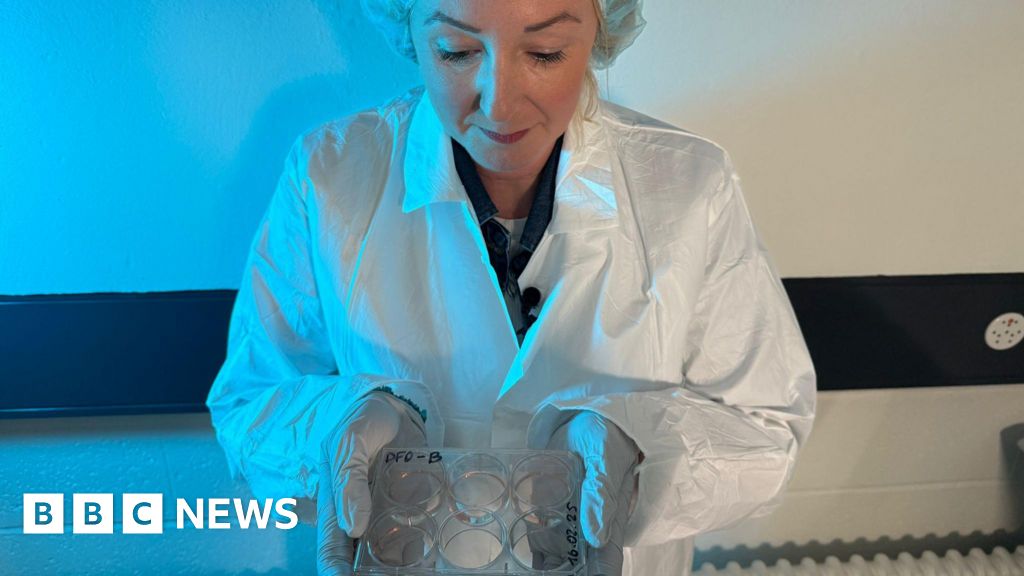Down The Tylenol Rabbitol

Tylenol is in the news. So let’s go down the Tylenol rabbitol.
First of all, let’s establish a clarification:
Tylenol = Acetaminophen = Paracetamol
It’s a painkiller in the form of a pill. Its major rivals are Aspirin and Ibuprofen.
Now, let me do this in steps.
Trump says, “Don’t use Tylenol.”
Typical Trump. Exaggerating a bit. The US Government actually wants to urge caution.
Wes Streeting heard this, and was “aghast” said an aide.
Why? What does Streeting know? Is he opposed to caution? Or just exaggeration?
Streeting went on breakfast television.
I trust doctors over President Trump, frankly, on this,” he said. “I’ve just got to be really clear about this: there is no evidence to link the use of paracetamol by pregnant women to autism in their children. None. So I would just say to people watching: don’t pay any attention whatsoever to what Donald Trump says about medicine. In fact, don’t even take my word for it, as a politician – listen to British doctors, British scientists, the NHS.
No evidence? Nought?
And, hang, on, ‘don’t take your word for it as a politician’?
This sounds like a real conundrum.
- The politician says, ‘Don’t trust politicians: trust scientists.’
- The citizen replies, ‘I won’t trust you, thanks: but, since you say trust scientists, I won’t trust scientists either.’
The Guardian finds a lot of experts to confirm the Streeting analysis:
- The Medicines and Healthcare products Regulatory Agency
- NHS England
- The Royal College of GPs
- The Royal Pharmaceutical Society
- The UK Health Security Agency
- The National Autistic Society
- The World Health Organisation
- Helen Bedford, a Professor of Child Health at University College London
- Dr Susanna Kola-Palmer, a psychologist at the University of Huddersfield
- Heidi Larson, a Professor of Anthropology at the London School of Hygiene and Tropical Medicine, writing in the Lancet
I like making a list, as, damn it, whenever I read one of these articles I cannot see clearly. In fact, I am fairly sure this is the point: the Guardian wants to bombard the reader with authorities all sounding forbidding and scientific.
I valiantly decide to venture down the rabbitol a bit further.
Helen Bedford, Professor, UCL said: “I was horrified, because it’s not evidence-based and he is the most powerful man in the world.”
I checked this professor. She says she has a background in nursing, health visiting and vaccine communicating. Yes, she has written academic articles on vaccine uptake. Not an expert on vaccines, then, but an expert on vaccine hesitancy. A behavioural scientist, then. She is a believer in “optimal uptake”. A bit of a branch Covidian.
Dr Susanna Kola-Palmer, Reader at Huddersfield, said:
People are prone to authority bias, trusting and believing what someone in authority says just because they are an authority figure, not necessarily because they are right. Donald Trump, as the US President, is a powerful public figure and therefore lots of people will accept what he says without questioning it.
I agree. We do have an authority bias. In my case, I seem to find myself trusting and believing what is said by, er, the Medicines and Healthcare products Regulatory Agency, NHS England, the Royal College of GPs, the Royal Pharmaceutical Society, the UK Health Security Agency, the National Autistic Society, the World Health Organisation. These are authorities, aren’t they? However, perhaps, on Dr Susanna Kola-Palmer’s logic, I ought to distrust them. But then I would be taking that on her authority.
By the way, she works on health psychology. Hell’s bells, she is also an authority on ‘vaccine hesitancy’. Vaccine hesitancy. Does anyone study this philosophically, that is neutrally? Or do they all study it politically, i.e., by advocating something, by taking sides? I suspect the latter. In fact, I know it.
By the way, the Guardian says: “President says [blah blah blah], assertion contradicted by research.”
Now, “blah, blah, blah” could be anything, and the Guardian would oppose it, say it was not in accordance with research, evidence, fact. But, excuse me, what research exactly, which fact, whose evidence?
And of course the Guardian, which parroted all the 2020 COVID-19 heavy science without restraint, cannot bring itself to quote R.F. Kennedy without correcting him. How do they know he is wrong? (Well, I mean, apart from having a political prejudice that he must be wrong…)
The worst part of this is that all Kennedy is trying to do is encourage people to be cautious. His hypothesis – a very good one – is that medicine might be dangerous. That’s all.
Consider what the doctors did to Charles II. They killed him, but only after torturing him. I leave you to find out the details.
But here is something funny. The Guardian issued a correction of its piece, written by one Robert Tait. Kennedy had said that he was “was committed to investigating the ‘etiology of the autism outbreak’”. But Tait, quite naturally having politics on his mind, misheard Kennedy and wrote “ideology”.
This article was amended on September 23rd 2025. An earlier version quoted Kennedy as saying autism had an “ideology”; however, Kennedy said “etiology”.
Ha, ha, ha. Well, of course this daft Left-wing journalist thought he had heard Kennedy say that autism has an ideology.
Let’s continue down the rabbitol.
Heidi J. Larson, in a paper entitled ‘A crisis of credibility: the global cost of US vaccine misinformation‘ for the Lancet last month, says that the “global health community” is suffering from a “pandemic of misinformation”. “The USA functioned as a major exporter of COVID-19 vaccine misinformation,” etc.
Aye, so it did. So did the UK. So did the Lancet. Still does.
The sad fact is that Streeting, the Guardian, are all wrong. There is research supporting a relation between autism and Tylenol. But, they say, listen to the science. By which they mean this science. Which means, of course, not that science. Not the science being used by Kennedy and Trump.
Last month, the Harvard T.H. Chan School of Health in a piece entitled ‘Using acetaminophen during pregnancy may increase children’s autism and ADHD risk‘, advertised an academic article by one of its professors published in a journal called Environmental Health.
The researchers analysed results from 46 previous studies worldwide that investigated the potential link between prenatal acetaminophen use and subsequent NDDs in children. The researchers used the Navigation Guide Systematic Review methodology — a gold-standard framework for synthesising and evaluating environmental health data — which enabled them to conduct a rigorous, comprehensive analysis that supported evidence of an association between acetaminophen exposure during pregnancy and increased incidence of NDDs.
NDDs are neurodevelopmental disorders. Anyhow, sounds scientific enough: systematic review, gold standard all that, plus Harvard. How about that for an authority? And what did this authority urge? It urged – caution.
Andrea Baccarelli of Harvard wrote in a statement to the White House: “Further research is needed to confirm the association and determine causality, but based on existing evidence, I believe that caution about acetaminophen use during pregnancy — especially heavy or prolonged use — is warranted.”
Further study? Caution? Aye, Streeting, makes you aghast, does it? Aye, Guardian, has you reaching for your compliant regime experts to shout this down, does it?
Of course Trump exaggerated. He said, “Don’t use Tylenol.” Well, he is a politician. Don’t trust him. What he meant was, “Be cautious.” What do the scientists say? Well, one of them, Ann Bauer, one of Beccarelli’s co-authors, said, in effect, as I paraphrase, ‘Be careful, you may still use it, but do so in an informed way.’
Back to the people on the incautious side:
Streeting said: “It’s really important that at a time when you know there is scepticism – and I don’t think scepticism itself, asking questions, is in itself a bad thing, by all means ask questions – but we’ve got to follow medical science.”
In other words, don’t be sceptical. Not about this. Not when doctors are involved. And bear in mind that Streeting is trying to pose as a serious politician. Whereas he is in fact the irresponsible one.
Maybe he’ll start telling the truth when no longer Secretary of State for Health and Social Care.
The only observation about all this that I found even slightly convincing was an argument Bret Weinstein made when talking to his wife on the Dark Horse podcast. Tylenol replaced aspirin in the 1970s, when it was found that aspirin was dangerous during pregnancy. The irony. But the argument is a general one, not a specific one.
Bret Weinstein said, and again I paraphrase: “The fact that we do not know it is unsafe now does not mean it is safe.”
It is a matter of historical that scientists in the past said ‘It is safe’ whereas scientists in the present say, ‘Alas, in truth, it was not safe.’ So is it not evidential, factual, practical to say, in response to the doctors and authorities advocating a medicine about which there is some doubt, or even about which they may be some doubt, ‘Let us be cautious!’
According to the regime scientists and their stooges in ministries and the newspapers and the universities, apparently not.
Nature tells us that “scientists say that strong evidence between the medication and autism is lacking”.
Well, zarking fardwarks, was there any strong evidence at any point for any governmental-scientific intervention during the pandemic of misinformation that was the COVID-19 pandemic?
Nature means that there is no established causality, that strong word, demonstrating without a doubt that, say, Tylenol/Paracetamol causes autism. There is only a correlation, and, indeed, a disputed correlation. Fair enough. But should we not be cautious?
Why is it ‘The Science’ to behave like sheep when a favoured dog barks a bit rabidly but not when a wise old hound urges caution?
Let’s listen to Whoopi Goldberg, as if addressing Trump on the View: “RFK Jr is not a doctor. And you, sir, are not a doctor. And you don’t have any understanding, clearly, of why people take Tylenol. It’s been around forever. There are all kinds of studies… I’m not listening to you any more…!”
Reassuring, ain’t it? She mentions that the manufacturers of Tylenol have found (cough, paid for?) research to reassure us that everything-is-all-right. Good! What she does not mention, however, is that she is not a doctor. Or that even if she were a doctor it would not mean very much. COVID-19 demonstrated that. Anyhow, Whoopi Goldberg: the best we can say of her is that, like the scientists, she is a dependent variable.
Overall, nothing to see here at the bottom of the rabbitol.
In sum, a Government has urged caution and will pay for more research into the causes of autism. The story, as usual, is not the story, but the response to the story in the flouncing and preening and grifting of the dependent variables.
James Alexander is a Professor in the Department of Political Science at Bilkent University in Turkey.
Recent Top Stories
Sorry, we couldn't find any posts. Please try a different search.











